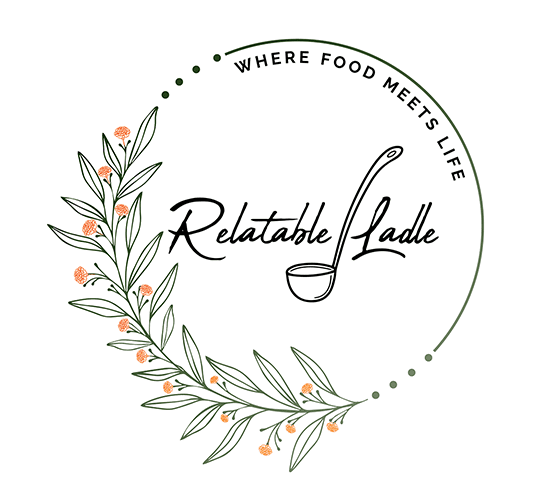Is food just fuel, thoughts a byproduct of experience, and feelings situational to you? You might be surprised by the truth: it’s so much more than that. Did you know that food can influence our mood? Recent research shows a link between the nutrients we consume and our psychological well-being.

How Does Good Food Equate to Good Mood?
Cognitive Function
The brain relies heavily on consuming nutrients to function at its best. Foods like fatty fish, nuts, seeds, greens, and berries are excellent sources of vitamins, antioxidants, and minerals used to boost the brain’s cognitive abilities. Omega-3 fatty acids contribute to the structure of brain cells and neurotransmitter function, which can impact mood and cognition (Healthline). What we eat plays a significant role in supporting the brain. Pretty sophisticated, right?
The Correlation between the Gut and the Brain
Our microbiome is powerful and often underestimated. This hub contains an intricate network of neurons and neurotransmitters that can influence our emotions and mental well-being (Emma Ferris, RD, Stove Health). The gut, often called the “second brain,” will signal to the primary brain if harmful bacteria are growing from unhealthy diet choices or if good bacteria are growing to help support the body. When our gut suffers, we can experience things like chronic fatigue, brain fog, low and high blood pressure, insomnia, hormonal imbalance, mental health symptoms, and so on (Odelya Gertel Kraybill, Ph.D., Psychology Today). Probiotics and fiber-rich foods can support a healthy microbiome and in turn, promote the production of serotonin and reduce symptoms of depression and anxiety.
Blood Sugar Levels and Mood
When blood sugar levels are unstable, our mood can be adversely affected. Diets high in refined sugars and processed carbohydrates can lead to rapid spikes and crashes in blood sugar, contributing to mood swings and irritability (Medical News Today). Eating in moderation is essential for this reason. Complex carbohydrates, fiber-rich foods, and balanced meals can stabilize blood sugar levels while providing a steady supply of energy to the brain and supporting mental clarity.
Inflammation and Mental Health
Poor dietary choices can lead to chronic inflammation. Inflammation is associated with mental health conditions, including depression and anxiety (DMV Psychiatric Wellness). So what foods cause inflammation? Excessive processed foods, sugars, and unhealthy fats can cause it. Eating fruits, vegetables, whole grains, and fatty fish will help reduce inflammation. Incorporating more anti-inflammatory foods into your diet can reduce the symptoms of certain mental health disorders.
Micronutrients and Mental Resilience
Micronutrients are crucial in maintaining mental resilience. The risk of mood disorders increases if you are deficient in vitamins such as D and B and minerals like iron and folate. To give an example of how vital vitamins are, let’s look at B12.
This vitamin is responsible for the formation of red blood cells. If there’s a deficiency in B12, there could be a lack of oxygen transported throughout the body and, therefore, less energy to the brain. Low energy in the brain could result in mood swings, paranoia, irritability, confusion, dementia, and hallucinations (or mania). With a sufficient supply of B12 and folate, serotonin and dopamine can be produced to regulate and aid good mental health (Web MD). Meats and dairy are good sources of B12 and other essential vitamins. A nutrient-dense diet supports good mood.
Role of Hydration in Mental Function
Water transports nutrients, removes waste products, and contributes to maintaining a healthy physiological environment for the brain. So it makes sense that mild dehydration can impair concentration, alertness, and short-term memory (Abbott). It has been associated with anxiety and depression as well. Dehydration can cause tension and fatigue and degrade how we feel (University of Connecticut). A well-hydrated body is crucial to support mental wellness.
Emotional Eating and Mental Health
We’ve all been there – we had a rough day, and what we want most is comfort food. Not the nutritious, balanced kind. The tasty, processed, high-fat content kind. We might seek comfort in food during times of stress, distress, or anxiety, or we might reject food for those same reasons. Unhealthy eating habits can ultimately contribute to mood swings. How often have you reached for those processed, sugary foods and ended up feeling irritable, tense, guilty, or low from how temporary the relief was (Mayo Clinic)? Our eating habits can play a significant role in regulating our emotions.

Cultural and Social Influences on Dietary Habits
Culture and society can influence our selection of foods. Shared meals and cultural traditions play a role in shaping our dietary habits. Think of the Mediterranean diet, which originated from traditional foods of Mediterranean countries. According to nutritional science, adopting the Mediterranean diet could reduce depressive symptoms and promote long-term mental health (Olive Wellness Institute). For some people, this is everyday food that they were brought up with, but for many others, it’s a specific diet that is adopted later on in life.
Additionally, social connections formed over meals can contribute to emotional well-being, emphasizing the importance of communal dining experiences. Communal dining can increase happiness and contentment with life and one’s sense of self (University of Oxford). Even how we choose to eat can contribute to emotional well-being.
Conclusion
The bond between food and mental health is multifaceted and intricate. As research continues to delve into the connection between food and mood, there is increasing evidence that dietary choices are pivotal in shaping mental well-being. A balanced diet, a healthy gut microbiome, and mindful emotional eating habits are essential to nurturing our bodies and minds. We can empower ourselves to make informed food choices to achieve a more positive and resilient state of mind.
What Do You Eat for A Good Mood?
Please drop us a comment below! Check out our recipes for some ideas on good food!
Disclaimer: All content and information on this website including our recipes and blog articles is for informational and educational purposes only and does not constitute medical, psychological, or health advice (for that please always seek the help of a professional in these areas). We do not warrant that the information presented herein is free of any errors or omissions although we do our best to provide information backed by research.

